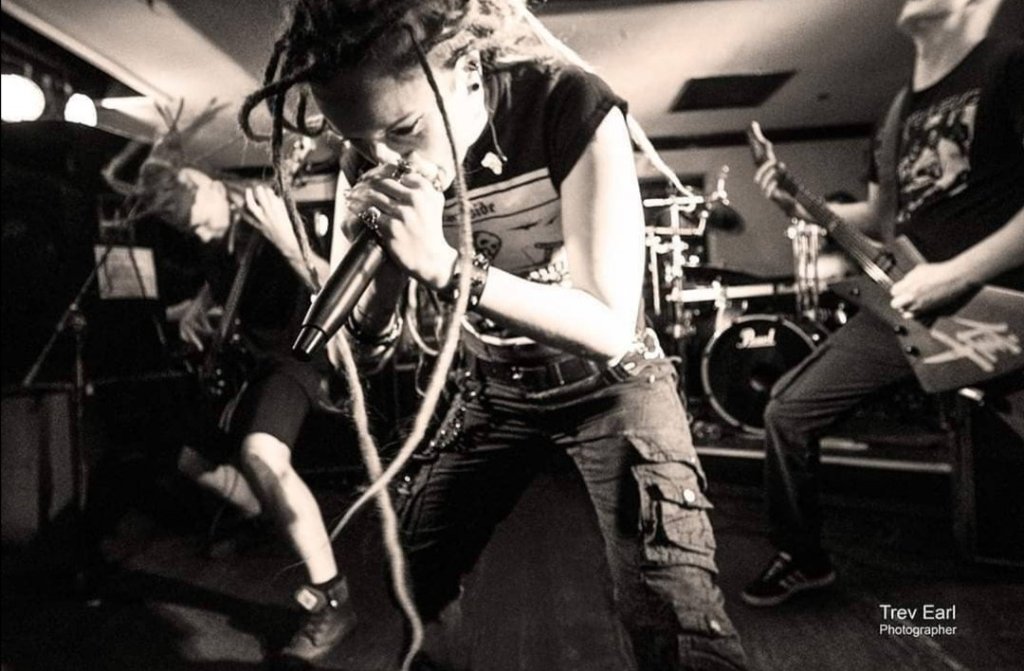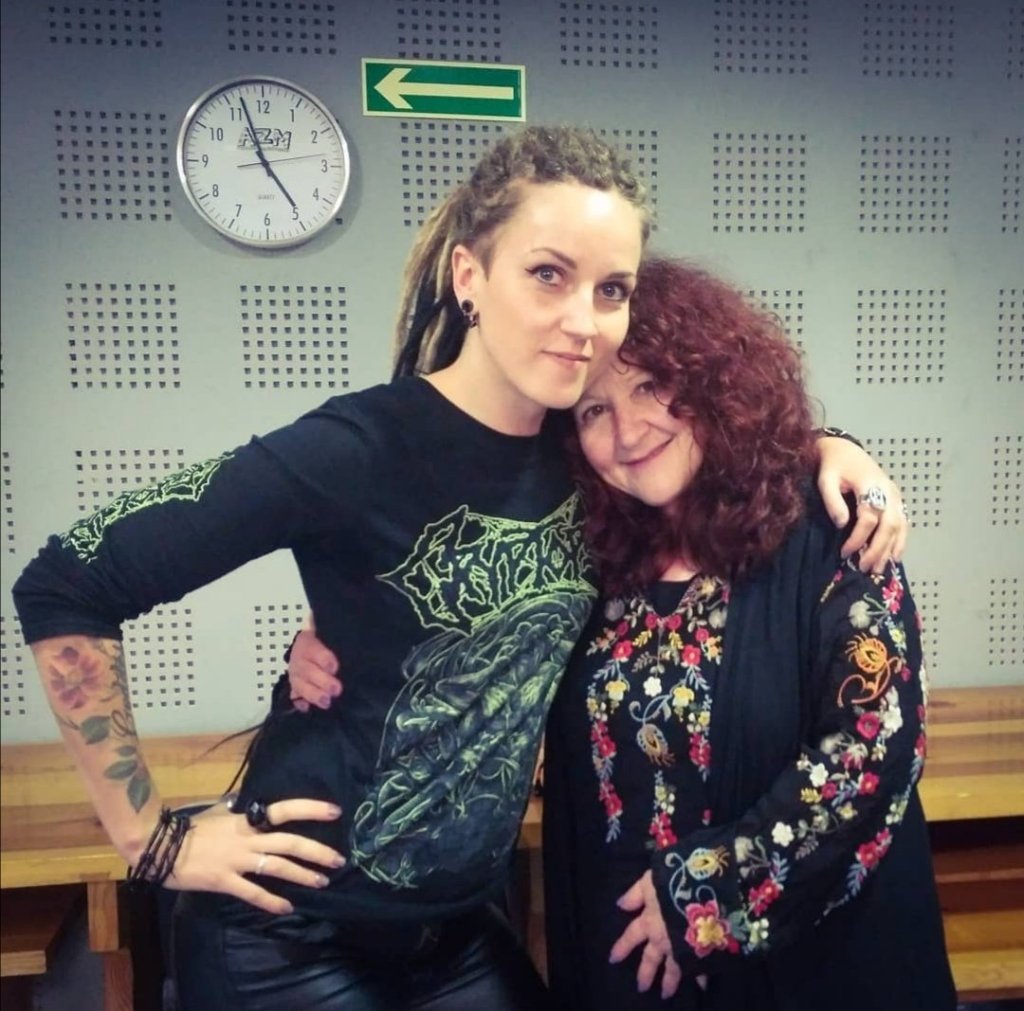The Therapeutics of Screaming
by Māra Lisenko and Katie (from Heavy Metal Therapy)

The idea that screaming may be a cathartic and therapeutic experience has been around since the late 60’s when psychotherapist Arthur Janov proposed the benefits of ‘primal scream therapy’. This approach has not been without controversy but has the central idea that the release of intense emotions (often related to childhood trauma by Janov’s model) via screaming or other non-censored expression helps with processing difficult feelings.
Research into emotional processing in listeners of heavy metal shows that this can be helpful for the processing of anger, but what about the therapeutics of being a metal vocalist? We couldn’t find much by direct research on this, though came across a cool little study that showed that aspects of metal vocals are correlated to recognised vocalisation patterns in emotional expressions like anger and sadness (references below). Yet many metal vocalists, even the ones that are just practicing at home (I was going to say ‘bedroom screamers’ but realised that might not be what I meant!), say that it could be something very therapeutic indeed.
Here Māra Lisenko, metal vocalist and vocal coach, reflects on her experiences and those of her students:
Anger is an emotion that’s not very much welcomed in today’s society. Everyone has to smile, everyone has to be “ok” and do “well”, it almost feels like we’re forced to be happy. But in a healthy emotional system, there has to be a balance between ‘good’ and ‘bad’. So how do we deal with negative emotions, especially if they are very intense, and burying them only leads to self-destructive patterns and long-lasting resentment? Well, there are few options, some people backlash that anger onto other people or themselves (not suggested) thus continuing the pain, some people find other more constructive and safer ways of letting go by boxing, playing tennis, beating up pillows.. and doing metal vocals! Sometimes I see a shy, tiny teenage girl who comes to my lessons just to quietly whisper “I want to learn growling”. Oh my… And then I realize that there is soooo much work to do, and not so much technically as psychologically.
A reoccurring theme that I notice is that students sometimes are not so much interested in singing or screaming itself, they just want to release their voices, and usually, I already know what’s behind that- they might have a hard time saying “No”, they cannot draw healthy boundaries, to stand up for themselves, be straight and honest in their opinions and feelings, they might even feel like their opinions don’t matter at all. So they silence themselves, to the point it starts to burn them from inside and they need an outlet for that. And they might choose metal screaming, I mean you cannot do it silently, you HAVE to let it out- it’s also a matter of technical safety for the voice. So a lot of times I see how voice training changes not only their voices but also their lives because they feel “allowed” to get more vocal to express their emotions more freely. I teach not only how to train the voice but also work with the thoughts and beliefs because where your mind goes, the voice follows. Sometimes students freak out that by the tone of their voice I can tell EXACTLY what they are thinking!

Singing and screaming absolutely is not only technical but mental! Often people who choose such an extreme form of vocalisation as screaming have a lot of intense, unprocessed feelings, that otherwise, they don’t feel safe to express. It can range from a loss of a loved one to unhealed childhood trauma, or depression episodes or resentment, etc. When students start lessons one of the first questions I ask is: “why do you want to scream?” I believe that screaming has to be justified. I mean we don’t go around and scream what a beautiful day it is, screaming is usually associated with anger, pain, very heightened emotions, protest, rebellion, there has to be some ‘emotional friction’, otherwise it is just pure noise. I honestly have no interest in teaching someone to scream simply because they think it’s “cool”. Because I myself also scream with a purpose.
When I fell into a severe depression many years ago, the lyrics and the way I sang back then was not enough to express what I was going through. There was a lot of “ugliness” in my mind that needed a release. So I went for metal because it welcomes all the darkness and ugliness and it’s a place where it is ok to express that negativity. Actually, it’s more than that- it’s where you turn that negativity into something creative, into an art. What an amazing safe and meaningful outlet. I love a phrase my teacher Melissa Cross once said:
“Don’t scream if you have nothing to scream about”
and I totally agree. On the contrary, if you have something to scream about, it will be such a great therapy for you, it’s amazing how many famous metal vocalists admit that screaming is their form of therapy, including singers like Max Cavalera (ex-Sepultura, Soulfly) and Jonathan Davis (Korn), just to name a few. So you need a vocal technique for sure, it is a ‘safety net’ to express your emotions, otherwise, you will destroy your voice.
As the name “extreme vocals” imply- it is a high-risk activity but with the techniques and training, this outlet of intense emotions can be so rewarding. For some people, screaming is an ugly sound, for some it’s beautiful, but for some- it’s meaningful. I cannot count the times when someone has said that my screaming and my lyrics have helped them to release and process their intense feelings. I think it’s one of the best compliments I can ever have as a vocalist. The amazing thing is when you are free to express yourself emotionally, other people feel safer to do the same thing too. It’s amazing how both the vocalist and listener can benefit from these extreme vocal sounds that some consider “just a pure noise”.

References
Janov, A. (1970). The primal scream: Primal therapy: The cure for neurosis.
Sharman, L., & Dingle, G. A. (2015). Extreme metal music and anger processing. Frontiers in human neuroscience, 9, 272.
Link to vocal study – Link to Poster
Disclaimer: I am not a medical professional. I only share my personal experiences and observations working with some of my voice students. I also do not generalise all metal vocalists as having identified ‘mental health problems’, here are just a few experiences as well as a small fraction of my personal story, which directly correlates with the benefits of metal singing/ screaming and mental well-being!
Note: This post appeared first on Heavy Metal Therapy, by Katie on Oct. 3rd, 2020



